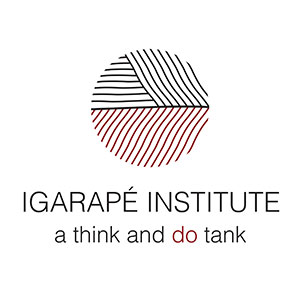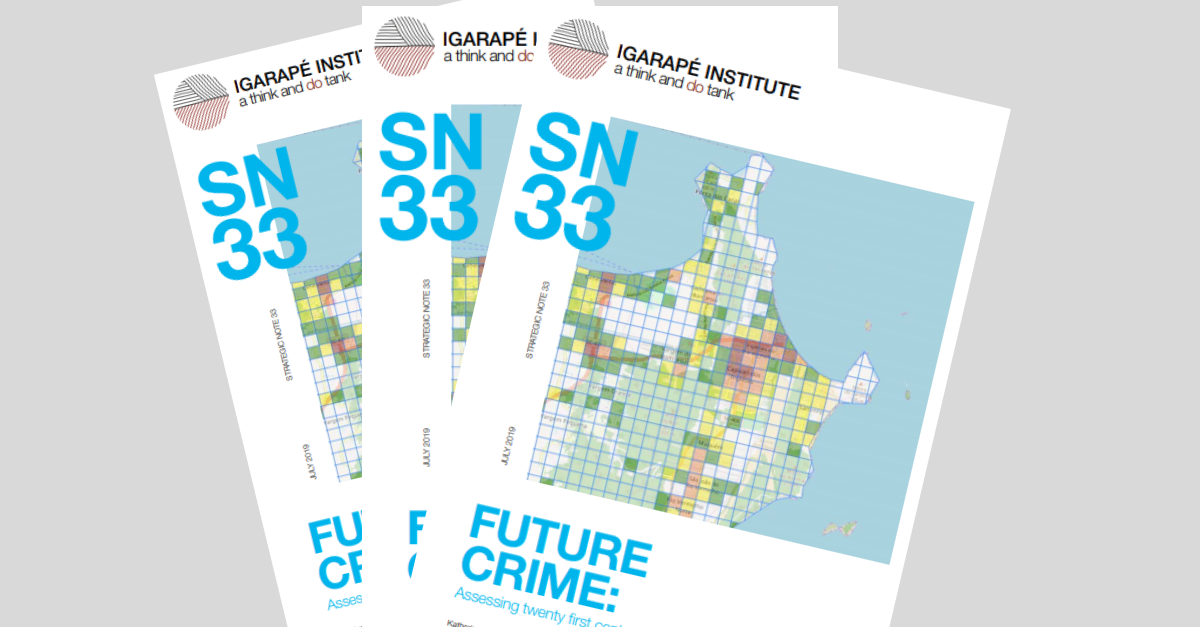Artificial intelligence can improve policing
But the spread of prediction tools raise concerns about data protection, privacy and misuse, says paper by the Igarape Institute
Cities are centers of innovation, creativity and experimentation. However, most cities also suffer from crime and violence. Just as crime evolves, it is important to adapt technologies to help prevent, deter and investigate it. But what technologies are working, and why? What are the risks of new technologies using predictive algorithms? Answering these questions is more important than ever.
A new study by Igarape Institute, Future Crime, highlights the evidence on crime prediction tools. It also provides an overview of the opportunities and pitfalls of new technologies to fight criminality and states recommendations to ensure transparency and accountability.
Predictive analytics are not new. Statistical and mathematical models have long been used to predict where crime may occur in the near future. Crime mapping and management tools first burst on the policing scene in the 1990s. The so-called “hotpots policing strategy” – merging data analytics with targeted policing – has been around for over two decades. Scientific evaluations have shown that it is an effective crime prevention strategy.
Predictive policing methods are now benefiting from advances in machine learning, coupled with more affordable computational power. But the rapid roll-out of these tools invariably raise complex ethical questions in relation to police action and civil rights. There are several considerations that law enforcement agencies would do well to consider before implementing predictive policing systems. To ensure that such tools are developed and used in a responsible manner, developers and police should make use of guidelines and principles when developing, deploying, and disclosing information about predictive policing tools.
Future Crime recommends that law enforcement agencies around the world are informed about the challenges and caveats associate applying these new crime prediction platforms. The principles of transparency and accountability must be placed front and center. The safety, dignity and rights of people must remain the most important element in the crime forecasting process, including when advanced software packages are deployed. Predictive tools need not replace the intuition and experience of law enforcement officers, but rather complement them in an agile and auditable manner.
The paper also highlights work being undertaken by the Institute to design, develop and test new transparent, ethical and accountable predictive crime applications in Brazil, where public authorities are keen to expand the networks of digital surveillance, increasing facial recognition and biometric capacities, and empowering police to use technology to disrupt crime.
Related projects by the Igarapé Institute:
- CrimeRadar: public-facing crime forecasting platform developed in 2016 that evaluated relative crime frequencies in different locations and times of metropolitan Rio de Janeiro;
- pilot of a police-facing CrimeRadar tool that will assist police Commanders in the planning of operations, to optimize the allocation of policing resources in the southern state of Santa Catarina, Brazil (partnered with the state’s Military Police (MPSC).
About Igarapé Institute
The Igarapé Institute is an independent think and do tank devoted to integrating security, justice and development agendas. The Institute’s goal is to propose innovative solutions to complex social challenges through research, new technologies, influence in public policies and articulation. The Institute currently works with 5 overarching themes: (i) national and global drug policies; (ii) citizen security; (iii) building peace; (iv) safer cities; and (v) cybersecurity. We are headquartered in Rio de Janeiro but transcending local, national and regional boundaries through our work. www.igarape.org.br
More info:
Renata Rodrigues (renatarodrigues@igarape.org.br)
(21) 3496-2114 | (21) 98038-2376
================




